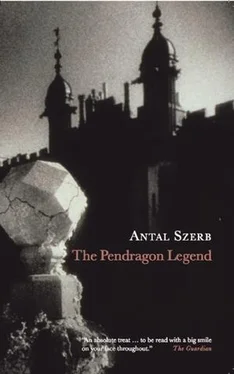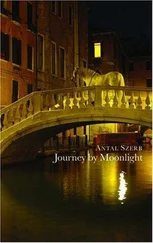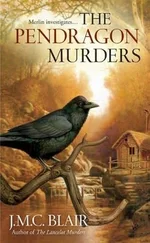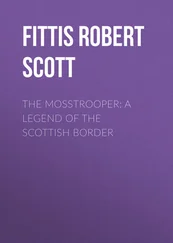Antal Szerb
The Pendragon Legend
“MY WAY IS TO BEGIN at the beginning” said Lord Byron, who knew his way around polite society.
Strictly speaking, I suppose all my stories begin with the fact that I was born in Budapest and that soon after — though it escaped my notice at the time — I was given the name I still bear today, János Bátky.
I pass over the events of the next thirty-two years — which include the Great War — between my birth and my first encounter with the Earl of Gwynedd, for he rather than myself is the hero of this remarkable tale.
So, to our first meeting.
Early one summer, with the London season drawing to its close, I was at a soirée at Lady Malmsbury-Croft’s. This kind lady had taken me under her wing ever since my time as Donald Campbell’s scientific secretary. I should explain that my occupation is to assist elderly Englishmen in the pursuit of their intellectual whims. Not to earn my living, as it happens: I have a small inheritance from my mother on which I can get by in whatever country I choose. For some years now that country has been England. I am extremely fond of its noble landscapes.
During the course of the evening the hostess seized me and led me off to a tall, grey-haired gentleman with the most wonderfully impressive head. He was seated in an armchair and smiling silently to himself.
“Your Lordship,” said she, “this is Mr John Bátky, the expert on medieval British insectivores — or was it old Italian threshing machines? — I really can’t remember at this moment. But whatever it is, I know you’ll find it absolutely fascinating.”
And with that she left us.
For some time we smiled benignly at one another. The Earl had a remarkably handsome head, of the sort one sees wreathed in laurel on the frontispiece of old books: a kind you don’t often see nowadays.
At the same time, I was rather embarrassed. I felt the noble lady’s somewhat inexact description had made me appear mildly ludicrous.
“Allow me, if I may,” the Earl began at last, “to ask what our hostess actually meant.”
“My Lord, the sorry truth is that the good lady was to some extent right. I am a Doctor of Philosophy, specialising in useless information, with a particular interest in things a normal person would never consider important.”
This was a facetious attempt to fend off a more serious topic, namely, what I actually do. I have found that the English do not approve of displays of intellectual curiosity.
A strange smile crossed the Earl’s face.
“Not at all. I am quite happy to talk about serious topics. I am not English. I am Welsh. That makes me, apparently, fifty per cent more like a Continental. No Englishman, by the way, would ever ask you your occupation. However, for my own intellectual satisfaction, I must insist on an answer to the question.”
He had such an intelligent-looking head that I blurted out the truth.
“At the moment I’m working on the English mystics of the seventeenth century.”
“Are you indeed?” the Earl exclaimed. “Then Lady Malmsbury-Croft has made another of her miraculous blunders. She always does. If she gets two men to sit with each other thinking that they were together at Eton, you may be sure that one of them is German and the other Japanese, but both have a special interest in Liberian stamps.”
“So My Lord is also a student of the subject?”
“That’s a rather strong term to use, in this island of ours. You study something, we merely have hobbies. I dabble in the English mystics the way a retired general would set about exploring his family history. As it happens, those things are part of the family history. But tell me, Doctor — mysticism is a rather broad term — are you interested in it as a religious phenomenon?”
“Not really. I don’t have much feeling for that aspect. What interests me within the general field is what is popularly called “mystic”—the esoteric fantasies and procedures through which people once sought to probe nature. The alchemists, the secrets of the homunculus, the universal panacea, the influence of minerals and amulets … Fludd’s Philosophy of Nature, whereby he proved the existence of God by means of a barometer.”
“Fludd?” The Earl raised his head. “Fludd shouldn’t be mentioned in the company of those idiots. Fludd, sir, wrote a lot of nonsense because he wished to explain things that couldn’t be accounted for at the time. But essentially — I mean about the real essence of things — he knew much, much more than the scientists of today, who no longer even laugh at his theories. I don’t know what your opinion is, but nowadays we know a great deal about the microscopic detail. Those people knew rather more about the whole — the great interconnectedness of things — which can’t be weighed on scales and cut into slices like ham.”
The fervour in his eyes was certainly un-English. The subject was clearly close to his heart.
Then he was overcome with embarrassment. He smiled, and assumed a more casual tone.
“Yes, Fludd is a bit of an obsession with me.”
At that moment a pretty girl joined us, and chatted away at great length, rather inanely, while the Earl, with true good breeding, generously encouraged her. I writhed with frustration, desperate to resume the conversation. Nothing interests me more than the way people relate emotionally to the abstract — why Mr X is a convinced Anglo-Catholic and Miss Y is devoted to Gastropoda. And why an Earl should be so enthusiastic about someone so distant and thoroughly dead as Fludd — that justly-forgotten quack and sorcerer — was a particularly interesting question.
But once again, Lady Malmsbury-Croft descended on me, and this time her blunderings proved less inspired. She led me to a distinguished old dame who would not have looked out of place in a museum and who quizzed me about animal rights in Romania. My protests were in vain: she insisted on regaling me with shocking examples from her last visit to Armenia. Apparently some lapdogs had become separated from their owner and been forced to fend for themselves.
Luckily a friend of mine, Fred Walker, suddenly appeared before us, with a sleekly-groomed young man in tow. He seated this person beside the lady, gathered me up and whisked me away. The old dowager failed to notice the change.
“Who is this Earl?” I asked him.
“You don’t know him? Why, he’s the one genuinely interesting person in the room. Owen Pendragon, Earl of Gwynedd. A thoroughly fascinating crank — just the chap for you.”
“So what’s his story?”
Gossip was one of Fred’s strong points.
“Well, then — this is years ago now — he had a mistress, a woman of rather dubious reputation, as you will see. She began her career in Dublin, walking the streets. He was going to marry her — people were quite outraged — but she had second thoughts, dumped him and married an old millionaire called Roscoe. Roscoe was the Earl’s father’s best friend.
“The amusing bit in all this,” he went on, “is that the Earl is otherwise a convinced, if rather quixotic, aristocrat. The story goes that while he was up at Oxford he joined a society that was so exclusive there were only three men in the entire university of sufficient rank to belong. Then the other two went down, and he stayed on as the one and only member. For two years he pondered who to take on as Vice-President, but couldn’t find anyone. Finally he went down himself and the society folded. For similar reasons, he has never once set foot in the House of Lords.”
“I’m sorry, Fred, but I don’t see anything special in this. Your stories are usually a lot better. From a man with a head like that, I expected something much more interesting. For an aristocrat to marry a woman of the lowest class is only natural. His social rank is enough for two.”
Читать дальше












